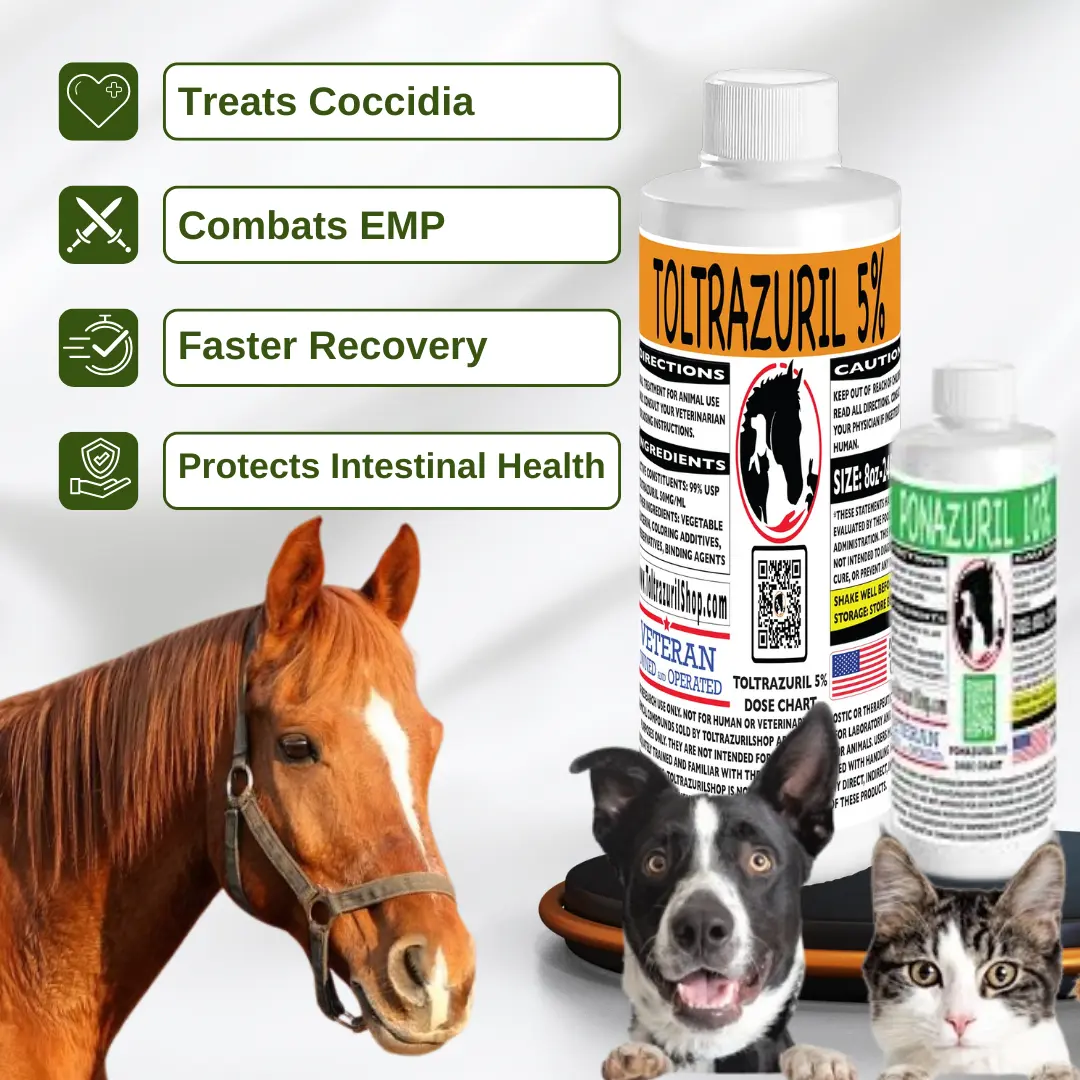No products in the cart.
Coccidia Protozoa in Dogs: Symptoms & Treatment
Understanding Coccidia Protozoa in Dogs is essential, as these single-celled parasites inhabit the intestinal lining and can cause significant digestive illness. Recognizing how they infect, affect, and can be treated in dogs helps ensure healthier pets.
Coccidia Protozoa in Dogs
What Are Coccidia Protozoa and How Do They Infect Dogs?
Coccidia are microscopic, single-cell parasites—protozoa—that infect the gastrointestinal tract of dogs. They are often ingested as immature oocysts from contaminated environments. Once inside the dog, they develop within intestinal cells, triggering disease.
The Life Cycle of Coccidia and Its Impact on Dogs’ Gastrointestinal Health
After ingestion, the oocysts release sporozoites that invade the cells lining the intestine. Those cells replicate the parasite and eventually burst open, releasing more parasites that damage the gut lining. This process impairs nutrient absorption and causes diarrhea, weight loss, and dehydration.
Treat Protozoal and Coccidial Infections in Dogs
How to Treat Coccidia Infections with Antiprotozoal Medications like Toltrazuril and Sulfadimethoxine
Treatment commonly includes sulfadimethoxine (an FDA-approved sulfa drug) and newer antiprotozoal options such as toltrazuril. Dosing may vary from a few days to several weeks, depending on severity and drug used.
How These Medications Work to Eliminate Coccidia from Your Dog’s System
Sulfadimethoxine inhibits parasite replication. In contrast, toltrazuril disrupts the protozoa’s reproductive cycle, causing the parasites to die off. Together or individually, these medications allow the dog’s immune system to clear the infection.
Treat Protozoal and Coccidial Infections in Dogs’ Poop
Identifying Coccidia Symptoms in Dog Poop: Diarrhea, Mucus, and Blood
Infected dogs often present with watery, mucous-covered, or bloody stool. Puppies may have severe symptoms like lethargy and inappetence—making stool observation a key early sign of coccidiosis.
How Treatment Improves Stool Consistency and Prevents Further Contamination
Once treated, stool returns to normal, reducing environmental contamination. Healthier stool also helps break the cycle of infection by limiting the spread of new oocysts.
Coccidia Protozoa and Dog Health
How Coccidia Protozoa Can Lead to Severe Gastrointestinal Problems in Dogs
Heavy infection causes damage to intestinal cells, leading to malabsorption, inflammation, and severe diarrhea. These problems can escalate to dehydration and poor physical condition, especially in puppies.
The Risks of Dehydration and Weight Loss in Dogs with Coccidia Infection
Without prompt care, affected dogs may become dehydrated and experience rapid weight loss—conditions that are especially dangerous in young or weak individuals.
Prevention of Protozoal and Coccidial Infections in Dogs
How to Prevent Coccidial Infections Through Hygiene and Cleanliness
Frequent removal of feces, prompt cleaning of living areas, and use of effective disinfectants such as diluted bleach or steam cleaning play critical roles in stopping the spread of coccidia.
The Importance of Regular Vet Checkups for Early Detection and Prevention
Routine veterinary exams and fecal testing allow for early detection. This is particularly important for puppies—a vulnerable population—and helps prevent severe infection and reinfection.
Conclusion
Coccidia protozoa pose a significant risk to canine health, especially in young or immunocompromised dogs. They invade and damage the intestines, lead to dehydration and weight loss, and can spread widely via fecal contamination. Successful management involves accurate diagnosis, effective treatment with antiprotozoal medications, and strict hygiene practices to prevent environmental spread and recurrence.
FAQs
Can coccidia in dogs infect humans?
No, coccidia infecting dogs are species-specific and do not infect humans.
How quickly do symptoms appear after infection?
Dogs typically develop signs like diarrhea and weight loss within a few days of ingesting infective oocysts.
Is sulfadimethoxine always effective?
It’s the FDA-approved first line, but some infections may respond better to antiprotozoals like toltrazuril, especially if resistance or severe infection is present.
What is the most effective way to disinfect areas?
Steam cleaning or diluted bleach solutions are most effective since oocysts are resistant to most other disinfectants.
Can dogs recover fully from coccidiosis?
Yes, most recover completely with prompt treatment and proper environmental management, especially if not reinfected.
References
- Cornell University College of Veterinary Medicine – Coccidia in Dogs
- Companion Animal Parasite Council – Coccidia Guidelines
- PetMD – Coccidia in Dogs: Causes, Symptoms, and Treatment
Next Steps
- Learn more about preventing infection through our article on Controlling Coccidia in Home Environments.
- Explore effective treatments further in Choosing the Right Antiprotozoal Medication for Dogs.


